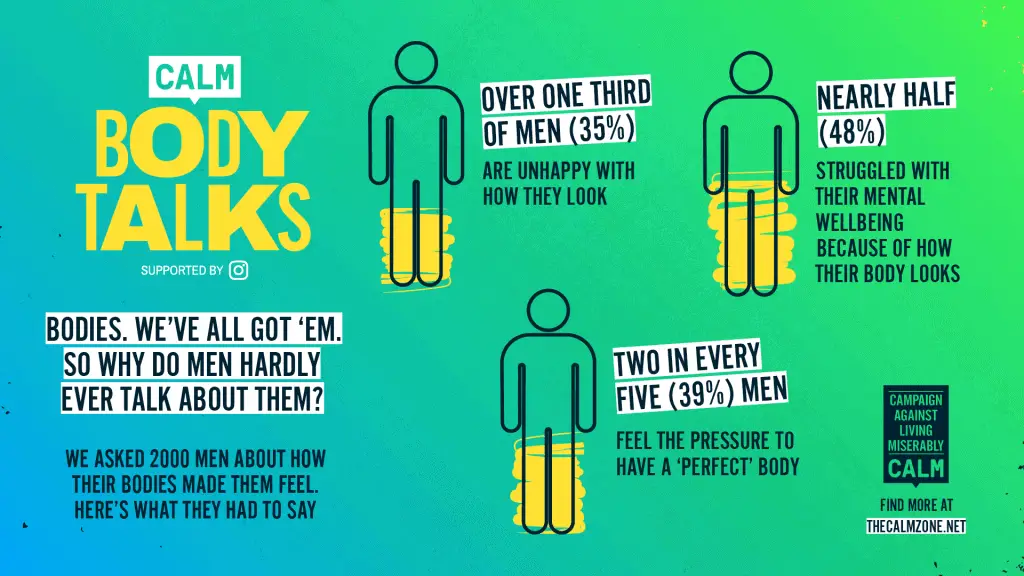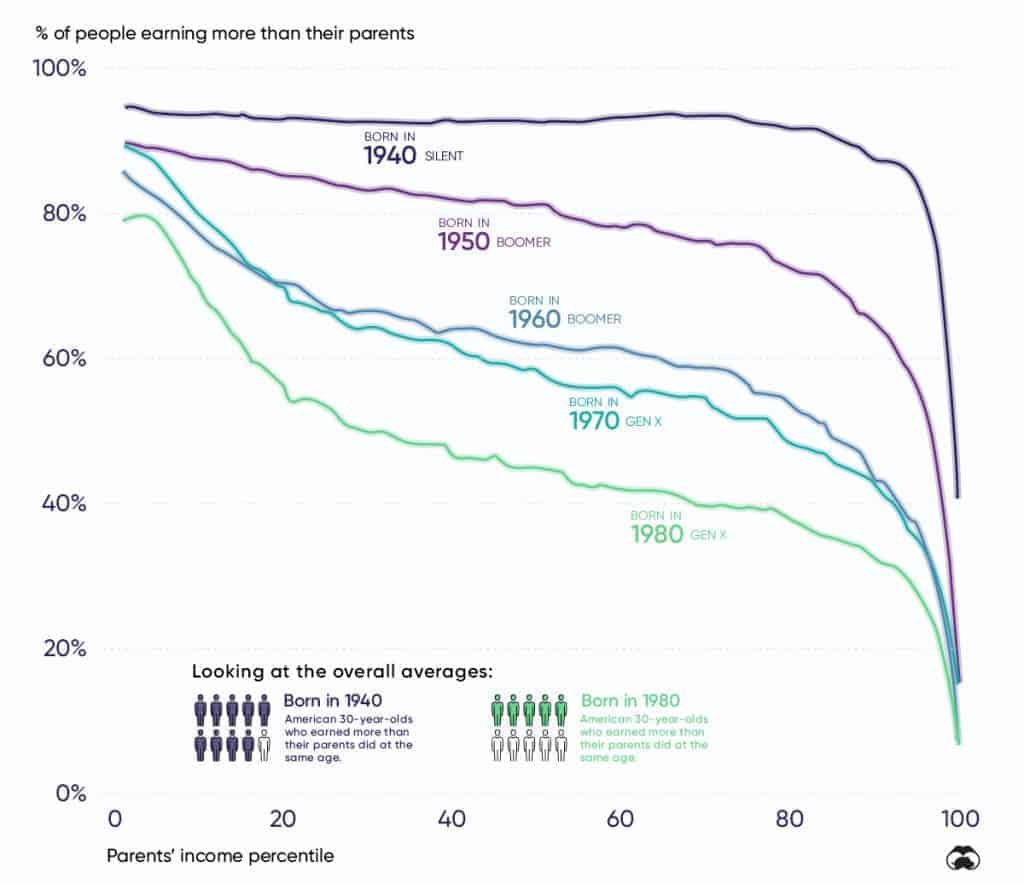Man, like women, can suffer from insecurity. If this insecurity isn’t overcome, it can hurt relationships, cause isolation, and disrupt men from finding their true potential. I have experienced this in my own life and have helped hundreds of men see their insecurities in their Masculinity and move past them.
This article will look at what insecure Masculinity looks like, spotting it in others, and how to overcome it.
What does it mean to be insecure about your Masculinity?
Insecure Masculinity is when someone is uncertain, anxious, and/or lacks confidence in their Masculinity. The insecurity commonly comes from past trauma, childhood, and feeling the need to “prove their masculinity.”
It’s pretty common for a man to feel insecure around their Masculinity at some point in their life.
Lots of boys go through an awkward transition during puberty. If they are shamed because their voice cracks or ridiculed for facial hair, it can lead to deep insecurity that can follow them to adulthood.
Though insecurity is commonplace, there are ways you can discover your insecurities and move beyond them.
Read more about increasing your Masculine Energy with practical activities.
What can cause insecure Masculinity?
There are unique struggles that men can go through that can lead them to question their Masculinity. Here is a list of issues that can lead to male insecurity.
1. Masculine Body Image
One of the most common descriptions of Masculinity is Strength. This is both emotional and physical strength.
The problem with society today is we live lives that are not as reliant on physical strength. Many boys grow up on computers and sedentary lifestyles. When a boy’s physical body doesn’t match up with the traditional definition of Masculinity (muscular and strength) it can lead to insecurities.
The issue of body image is even bigger than that.
A study done by CALM (The Campaign Against Living Miserably) found that 35% of men aged 16-40 say they are unhappy with how they look, and 48% of men say they have struggled with mental health because of it.
That’s two in every five men that struggle with body issues.

Studies have found that how unrealistic media portrayal of male physic is leading to mental health issues.
This can be especially true for the differently-abled and disabled men.
Men are told they need to be strong, yet they are also told they need to work 50 hours a week at a job, making it impossible to succeed at both things. This dissonance between what culture says is attractive and manly and their own body image can lead to insecurity.
2. Social Expectations
Society sells us a very specific version of Masculinity. Men that are strong, good in bed, enjoy sports, like roughing it, don’t like emotions, and are motivated.
But, what if a man has different hobbies or traits that might be considered feminine?
Like cheerleading, dancing, caregiving, or other activities.
No one is an exact carbon copy of what society says is masculine. Each of us has a unique personality. Jungian Psychology believes that each of us has masculine (animus) and feminine (anima) aspects to our psyche.
So it’s normal for men to enjoy things that might not fit the standard template of “a manly man.”
The issue arises when a man might question his masculine identity due to social expectations.
3. Wealth and Financial Status
Many men are told that they should be the financial provider of their families. This goes back to the 50’s ideal of a family unit, but times have changed.
Men can fall into the trap of defining their worth by how much money they make. It can lead to insecurities if women or other men are more wealthy than they are.
What’s even worse is the growing wealth gap and inequality for acquiring wealth (upward mobility).
Data by the Marcus Lu of Visual Capitalist shows that 79% of poor and low-income people will not outearn their parents. There is a massive decline in people able to become richer than past generations because it’s being held by a very select few.
This becomes even more disastrous with marginalized men. The average Black millennial has $5,700 less in net worth than previous generations.
A man might question his Masculinity if he can’t provide for his family. The rise of professional women and higher earnings has added to men’s insecurity.
This inability to gain wealth can lead many men to question their self-worth.
Learn more with my article on the decline of Masculinity.
4. Shame Over Sexual Preference
Society tells men that the most masculine men are heterosexuals with a fairly vanilla view of sexuality. If a man doesn’t fit that definition, it can lead him to question his Masculinity.
There has been a lot of work as a society to accept homosexuality, but there is still a lot of messaging that men grow up with saying that Heterosexual=masculine.
Many gay men find themselves questioning their Masculinity due to their sexual preference.
Sexual norms can also affect straight men.
If a man enjoys being dominated by his women in bed, it can lead him to question his Masculinity because of what the culture finds “normal”.
Being fully comfortable with his sexual preferences is an essential aspect of one’s security in their Masculinity.
5. Relationship and Intimacy
A common factor in Male insecurity is intimacy.
Many men equate self-worth to the partner they have (or don’t have).
I can’t even count the conversations I had with men that were showing off their sexual conquests. I hate hearing men talking about women as if they are something to collect.
It’s gross, but the behavior highlights something deeper.
Many men feel they have to prove their Masculinity by showing off the type of women they can attract. They can develop insecurity around their Masculinity if they can’t hold a relationship.
Sexual performance can be another source of insecure Masculinity.
Erectile dysfunction is a common issue that has lots of stigma around it. The Clevland Clinic found that 1 in 10 men is estimated to have Erectile dysfunction at some point in his lifetime.
The pressure of relationships, mixed with sexual performance and childhood trauma, can lead many men to question their Masculinity.
6 Signs of Insecure Masculinity
There are some clear signs you can look for in a man’s behavior (or your own) to recognize the insecurity.
1. Jealousy
A man that is secure in himself and his Masculinity is not afraid of other people. At the root of jealousy is the fear that someone can be better and take things away from you.
This can be particularly strong if a man is jealous of someone else Masculinity. If they are constantly putting others for acting masculine, they might be insecure with their own connection to Masculinity.
2. One-upping everything
Showing off is a tale-tail sign that someone is insecure in themselves.
If a man is super competitive and always trying to beat everyone else, then it’s a sign of their insecure Masculinity. Someone that is comfortable in themselves doesn’t need approval or to be #1 all the time.
Being realistic with your skills and failings is an important part of being secure in oneself.
3. Controlling behavior
A common sign of insecurity in men is Controlling behavior.
Constant arguing and gaslighting are often used by a man to try and push down other people to control them. It’s done out of fear because they don’t have self-worth.
4. Needs Constant validation
A big sign that a man is insecure is his need to validate his Masculinity.
An insecure man will look outside of himself for proof that he is worthy, like doing things just to get recognition.
If this type of man doesn’t get praise, they might become angry, distant, or combative.
Someone who is truly secure in themselves can find validation from within and doesn’t need reassurance from the outside world. It’s nice… but if they don’t get it, they won’t become upset.
5. Makes fun of other men
Ridiculing others is a clear sign of insecurity.
Men who make fun of others are trying to secure their position as men, but pushing down everyone else. They are so afraid of losing the imaginary hierarchy they have in their mind that they will put down others.
This can lead a man to reject anyone that doesn’t fit the standard version of Masculinity. It can be the root cause of anger towards gay, transgender, or men that don’t fit the traditional definition of Masculinity.
6. Has no sense of humor
Humor is a sign of security in one’s self.
A man should be able to laugh at his own mistakes, finding humor and levity. This shows maturity and security in himself.
If a man can’t take a joke, then he is insecure.
Negative Impacts of Insecure Masculinity
Insecure Masculinity is something plaguing our society with lots of negative impacts.
A recent study has shown that men that are insecure in their Masculinity have “an increased risk for the perpetration of violent and abusive acts toward their intimate female partners.” It can also be one of the causes of increased harassment online.

The increasing issues men face have also lead to an increase in male suicides.
The negative impacts are clear. Men that have insecure Masculinity hurt themselves through isolation, shame, and depression. They also hurt other men and women by being violent and emotionally erratic.
As big as a problem as this is, there is a way to make things better.
If you or someone else has been considering suicide, please
National Suicide Prevention Lifeline
Call at: 800-273-8255
Available 24 hours. Languages: English, Spanish. Learn more
CALM: Campaign Against Living Miserably
Free helpline and webchat – 7 hours a day, 7 days a week for anyone who needs to talk about life’s problems. We support those bereaved by suicide, through the Support After Suicide Partnership (SASP).
Overcoming Insecure Masculinity: How to become Secure
Many men have suffered from insecurity around their Masculinity, and many have found ways to heal.
Most of us get in a bad pattern from when we are kids.
I was bullied a lot in school and made to feel like I was less of a man in high school because I didn’t play sports or do any traditional masculine activities. I was a very emotional and sensitive boy.
As I grew up, I found security in myself by surrounding myself with supportive friends. I began to find artistic outlets (like my music) to gain confidence and purpose.
Over time I overcame the insecurities I was holding on to from my childhood.
There are a few things that I have seen help my own like, and thousands of me. The number one being therapy.
Therapy can provide men with strategies for coping. It can also give you a place to reflect on past patterns and traumas that have made you question your Masculinity.
Some healing measures may include:
- Avoiding homophobic/transphobic jokes and comments
- Talk about feelings openly and without judgment
- Being open to diverse masculinities
- Seeking therapy and professional help
- Joining a Men’s Group
Another important technique is just to notice and pay attention.
If you can get in the habit of noticing when you act out of insecurity and questioning how and why it arises, you will begin to unravel what is holding you back.
Don’t hold the behaviors in judgment. Just notice them and write them down.
I started writing more in a journal a few years back about my struggles with Masculinity, and it has been one of the most powerful things I have done. It let me see the root causes and begin to change.
With time and awareness, you will find yourself becoming more secure in your Masculinity.
In Conclusion:
Many men have struggled with their Masculinity.
It’s a common experience when growing up to explore the how and why of your manhood.
Insecurity commonly comes from a painful moment in our past or out of fear. The key is to recognize then your insecurities come up and take the time to sit in observation/questioning.
You not alone in this struggle.
Just like me, thousands of men I have talked to have struggled with this in my life.
Just continue to show up and be curious. Eventually, things will change and you will find the security in your Masculinity that you are looking for.





